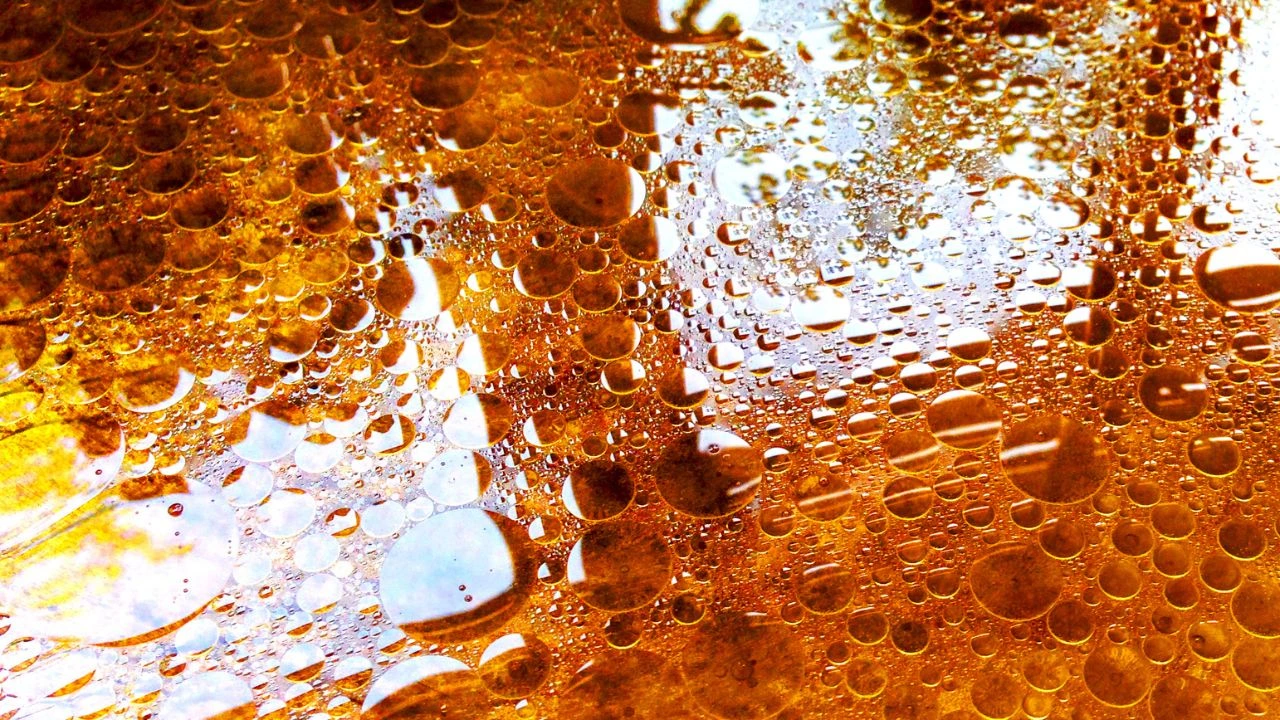Pouring oil down the drain causes most household plumbing problems. This fact highlights the importance of proper grease management in kitchens. Improper disposal can wreak havoc on plumbing systems.
Managing kitchen grease is crucial for environmental and financial reasons. Pouring grease down the drain risks not only your pipes but entire neighborhood sewage systems. It’s a key part of fats, oils, and grease (FOG) management.
Residential grease disposal can be simple. Seal cooled grease in containers for trash disposal. Many areas offer cooking oil recycling programs. These programs turn used cooking oil into biodiesel fuel.
Grease trap maintenance prevents buildup and ensures smooth operations. Even small amounts of grease can accumulate over time. This can lead to slow drains and potential blockages.
Proper kitchen grease management protects plumbing and helps the environment. Let’s explore effective strategies for handling this common kitchen byproduct.
What is Grease Recycling?
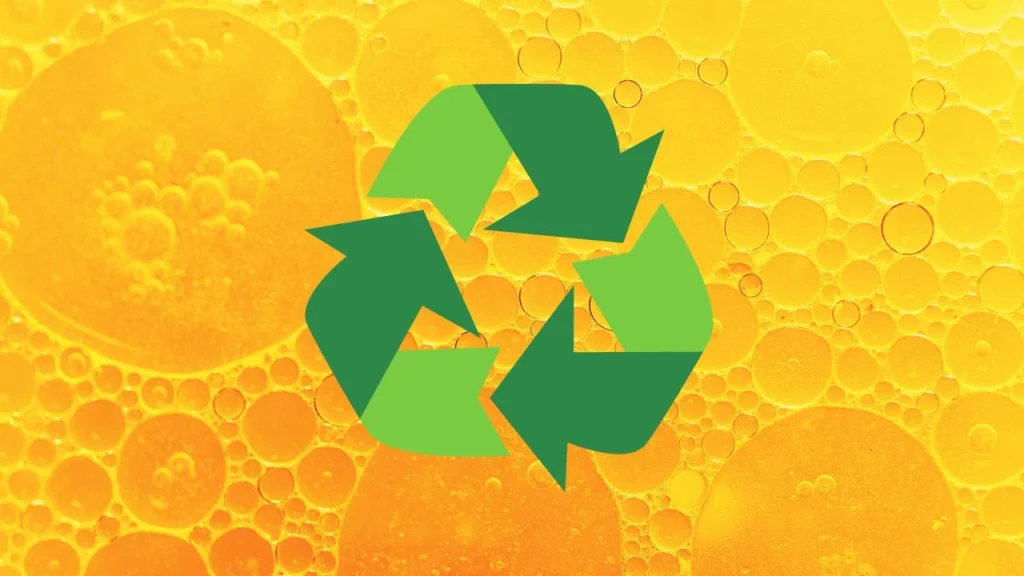
Grease recycling transforms used cooking oil into valuable resources like biodiesel. This process helps restaurants save money and protect the environment. Many cities offer recycling programs for cooking grease.
Companies collect this waste and turn it into renewable fuels. This keeps waste out of landfills and prevents water pollution. It also creates new energy sources.
Recycling cooking grease benefits both businesses and the planet. Restaurants can cut costs while helping the environment. It’s a smart choice for any food service operation.
Importance of Grease Recycling
Proper grease disposal is vital for restaurants. It prevents blocked drains and expensive plumbing repairs. Grease traps catch fats, oils, and grease before they enter sewer systems.
This protects the restaurant and community infrastructure. It also reduces dependency on fossil fuels. Grease recycling offers economic benefits and simplifies kitchen operations.
- Reduces dependency on fossil fuels
- Prevents environmental pollution
- Offers economic benefits to restaurants
- Simplifies kitchen operations
Turning used cooking oil into biodiesel promotes sustainability. It reduces non-renewable fuel use. Some companies offer pickup services for used oil.
They also deliver fresh supplies. This makes it easy for restaurants to join recycling efforts. It’s a convenient way to help the environment.
Types of Grease Suitable for Recycling
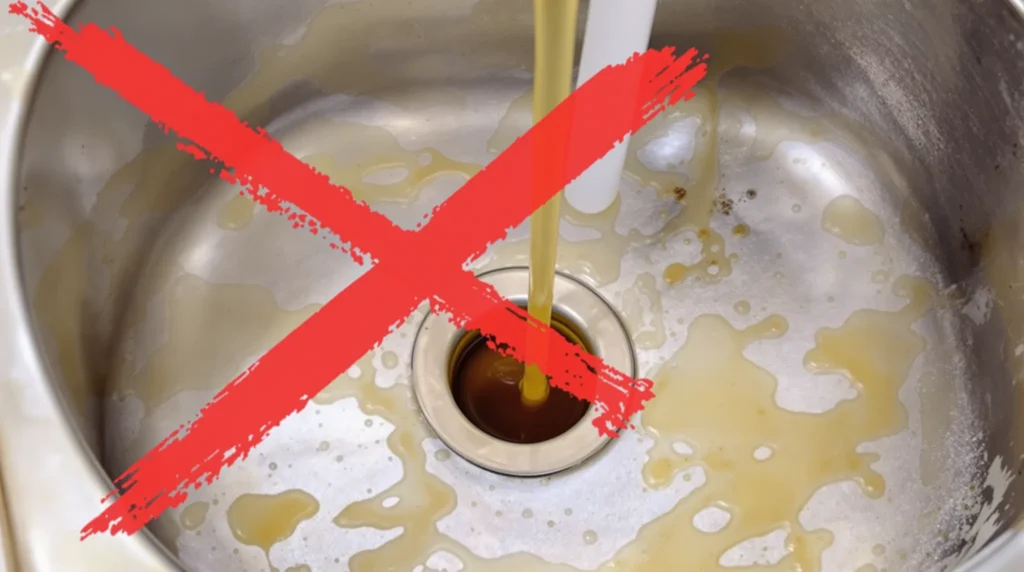
Grease recycling helps manage kitchen waste and prevents sewer problems. Various types of grease can be recycled. Each type has its own properties and handling needs.
Cooking Oil and Fat
Cooking oils from deep frying are great for recycling. This includes vegetable, canola, and olive oil. Animal fats like bacon grease can also be recycled.
Yellow grease from restaurants is highly valuable. As of October 2023, prices range from $48 to $59 per cwt.
Industrial Lubricants and Greases
Industrial lubricants and greases from machinery can be recycled too. These substances often need special processing due to their makeup.
The North American FOG market is growing fast. It’s expected to reach $25.6 billion by 2044, up from $9.5 billion in 2022.
Recycling grease prevents costly sewer blockages and supports a growing industry. Restaurants should install grease traps and work with recycling services.
The Grease Recycling Process
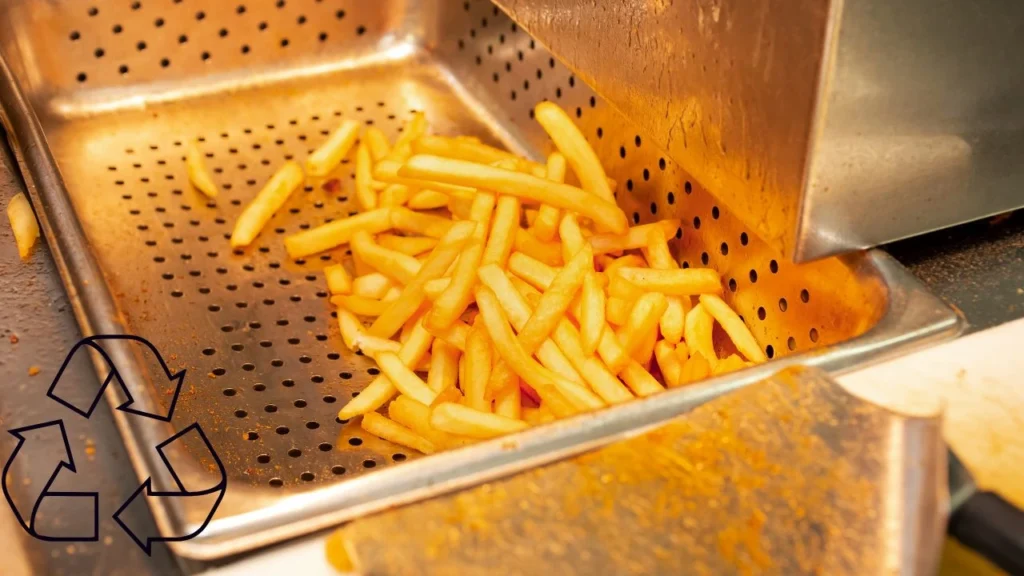
Grease recycling is vital for restaurants and food businesses. It transforms waste into resources and prevents environmental problems. This eco-friendly practice involves several key steps.
Collection and Storage
Proper collection and storage kick off grease recycling. Restaurants must store used cooking oil in sealed containers. This prevents spills and keeps the oil clean.
Many companies offer grease collection services with scheduled pickups. These services make it easy for kitchens to manage waste responsibly.
Filtering and Cleaning
The used cooking oil undergoes filtering and cleaning. This process removes food particles and other impurities. Regular filtering of fryer oil can extend its lifespan.
Larger operations use grease interceptors for bigger quantities. Grease interceptor cleaning is crucial for performance and regulatory compliance.
Transformation into Usable Products
The final stage turns cleaned grease into useful products. Used cooking oil can become biodiesel, a renewable energy source. Some businesses recycle it into animal feed or machinery lubricants.
This process reduces waste and creates valuable resources. By recycling grease, restaurants contribute to sustainability and may save costs.
- Prevents clogged pipes and sewer backups
- Complies with local regulations
- Reduces fire hazards in kitchens
- Supports the creation of renewable energy
Benefits of Grease Recycling
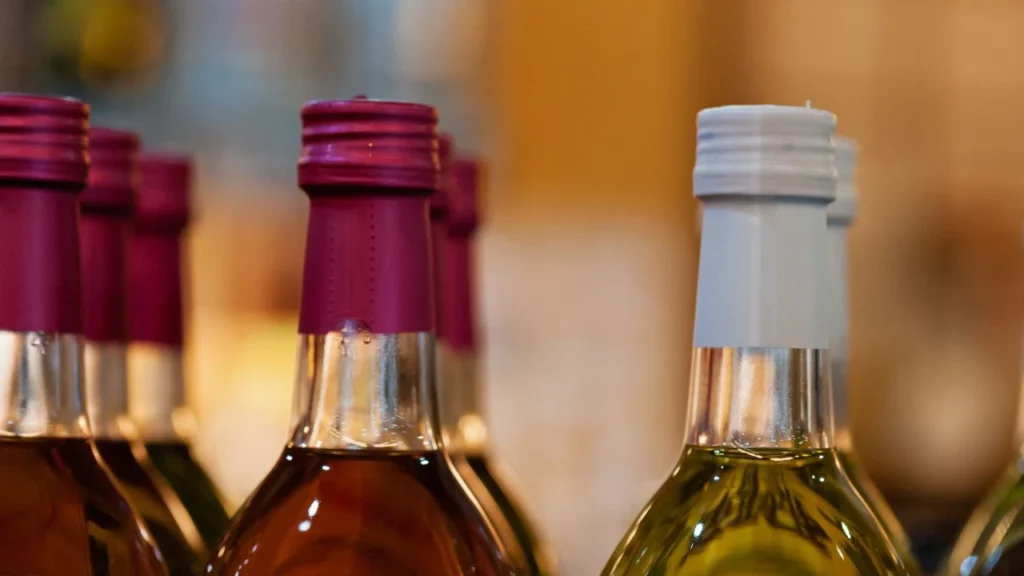
Grease recycling offers many perks for businesses and the environment. It turns waste into valuable resources. This practice protects our ecosystems and supports sustainability.
Environmental Impact
Proper grease recycling safeguards our waterways and ecosystems. It prevents sewer blockages and reduces water pollution. This practice protects aquatic life and maintains water quality.
Rendering grease for recycling also minimizes soil contamination. It contributes to a healthier environment for all living beings.
Economic Advantages
Businesses can save money through efficient grease recycling methods. Partnering with a cooking oil recycling company can generate revenue. It also supports the local economy.
For every $100 spent with local companies, over half stays in the community. Grease recycling creates new jobs in various sectors.
Energy Conservation
Recycled grease plays a crucial role in energy conservation. It can be transformed into biodiesel, a renewable fuel. This fuel reduces greenhouse gas emissions by up to 90 percent.
Biodiesel production helps decrease our reliance on foreign oil resources. Restaurants recycling used cooking oil contribute significantly to this effort. They support sustainable energy practices and lower their carbon footprint.
- Prevents water pollution and ecosystem damage
- Creates jobs and supports local economies
- Produces renewable fuel, reducing fossil fuel dependence
- Lowers greenhouse gas emissions
Challenges in Grease Recycling
Grease recycling faces several hurdles that impact its efficiency. These challenges affect restaurants and waste management systems. I’ve observed these issues firsthand while working with recycling programs.
Collection and Transportation Issues
Collecting and transporting used fry-oil is a major obstacle. Many areas lack proper infrastructure for efficient grease pickup. This can lead to improper disposal methods, causing severe blockages in plumbing systems.
Municipalities often spend millions annually clearing these blockages. They also repair damage caused by grease-related issues in public sewer systems.
Technical Limitations in Processing
Processing contaminated or mixed grease types poses technical challenges. Cooking oil can be converted into biodiesel. However, not all facilities can handle various grease compositions.
This limitation hinders the full potential of grease recycling programs. It reduces the amount of waste that can be effectively recycled.
Regulatory Compliance and Standards
Restaurant grease disposal is subject to strict regulations. Compliance with these standards can be complex and vary by location. Maintaining grease traps properly is essential, for businesses. It can be quite challenging.
Breaking the rules, on how you dispose of fats and oils (FOG) could cost you a lot in fines. Even get you in trouble with the law, for breaking regulations.
Violations of FOG (Fats, Oils, and Greases) disposal regulations can result in hefty fines. In some cases, it may even lead to criminal charges under environmental protection laws.
Improved technology and streamlined regulations can enhance grease recycling programs. Better education is also key. These changes can help turn waste into valuable resources and protect our environment.
Final Thoughts on Safely Managing and Disposing of Kitchen Grease
Proper grease management is crucial for food service businesses. It prevents plumbing issues and benefits the environment. Effective strategies can turn waste into valuable resources like biodiesel.
Well-maintained grease traps capture up to 90% of fats, oils, and grease. This reduces sewer blockage risks significantly. Regular maintenance and staff training can save businesses from costly repairs and fines.
Responsible grease management goes beyond just following rules. It’s about being a good community member and protecting our shared environment.
I’ve seen how proper grease recycling helps businesses and the environment. Every establishment, big or small, plays a part. Partnering with recycling services and educating staff is key.
Let’s commit to responsible grease management for a cleaner future. Together, we can create more sustainable kitchens and a greener planet.
FAQ
How should I dispose of grease?
Cooking oil and grease should be disposed of in a regular trash container. To do so, you may pour the oil into a sealable container such as an empty coffee can, then place the container in your regular household trash. Pouring grease down the drain can potentially clog your drain. For more information, refer to disposal guidelines.
How is grease recycled?
“Yellow” grease can be recycled into animal feed, lubricants, and fuels such as biodiesel. Small quantities of oil that cannot be recycled should be solidified with absorbent materials, placing the used materials in a separate sealed bag before throwing away. Learn more about grease recycling.
What kind of grease cannot be recycled?
Motor oil will contaminate cooking oil and grease, making it non-recyclable. Keep automotive waste separate from cooking fats. Some EBMUD residential cooking oil and grease drop-off locations will also take automotive wastes separately. Visit their drop-off locations for details on acceptable waste types.
How to dispose of cooking oil in BC?
A small amount of used cooking oil is accepted in the Green Bin program. Use paper towels to wipe residual oil off dishes, pots, and pans and put the paper towels into your Green Bin. Containers and large amounts of used cooking oil can be dropped off at the Coquitlam Transfer Station for free recycling. Check the Green Bin program for more details.
What is grease recycling and why is it important?
Grease recycling involves collecting and processing used cooking oils and fats to be reused, often as biofuels or industrial lubricants. It is important because it prevents environmental pollution by keeping these substances out of landfills and water systems while also promoting sustainability by creating renewable energy sources.
Resources
https://frontierwaste.com/resources/how-to-dispose-of-cooking-grease/
